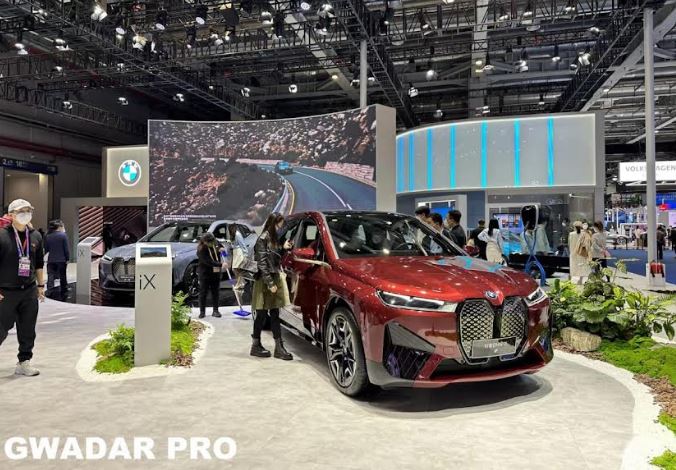SHANGHAI, Nov. 7 (DNA): Pakistan is tackling challenges brought by climate change, and its automobile industry is also facing supply chain problems.
New energy vehicles and smart vehicles can be the new directions that Pakistani companies can look to, this was noted at the Fourth Industrial Revolution and Smart Mobility Forum held within the China International Import Expo(CIIE) in Shanghai by UNIDO ITP NETWORK and CIIE bureau, according to a report published by Gwadar Pro on Monday.
The forum was under the theme of “Smart mobility: reshape the future.”
“The automotive sector is one of the world’s most interconnected markets, whose supply chains involve many companies spread across the globe.
The pandemic hit the automotive supply chain disruptions especially hard. But the industry survives and is changing for the better,” addressed Gerd Muller, director general of the United Nations Industrial Development Organization, on the forum.
He believes that the disruption of the supply chain might give the best timing for the revolution of auto manufacturing, which involves digital transformation and green transition.
On the forum, representatives from auto manufacturing companies including BMW Brilliance, Ford Motor China and Beijing Benz shared their experience of carbon reduction. In this year’s CIIE, they all brought their latest version of electric cars. Electrification is the most significant step on auto manufacturer’s green transformation journey.
Moreover, Beijing Benz has established 220,000 square meters of solar panels, which can produce 38 million-kilowatts electricity per year. 30% of the material used in the manufacturing section of BMW Brilliance is recycled material.
Ford has exchange meetings with their suppliers regularly to improve their environmental protection ability. The experience is worth learning for all auto manufacturing companies around the world.
In addition to low carbon emissions, the experts also discussed the digitalization of automobiles.
Rick Mo, head of the Green and Smart Mobility Unit in Hong Kong Productivity Council (HKPC), believes that the development of the EV industry is the base of smart mobility. “Intelligence is based on training, and training is based on data.
Compared with traditional gasoline cars, electric cars can provide more data, such as data of motor, battery, and control systems in the cockpit. By putting the collected data into AI models for simulation training, smart cars can be more intelligent.”
“5G provides advanced, high-speed connectivity that enables new user experiences including cloud-based video streaming and online gaming. C-V2X brings more advanced, safe and efficient road infrastructure, based on which brand-new transportation networks, vehicles, and services can be created.
These new technologies also pave the way for autonomous driving to make cars safer, more productive and more convenient,” said Jim Cathey, chief commercial officer of Qualcomm incorporated.
Smart mobility involves the development of smart manufacturing and the iteration of new energy, and it is also an important part of the smart city. The forum gave us an insight into the fast-developing auto industry. What will cars be like in the next decade? Let’s wait and see.

















